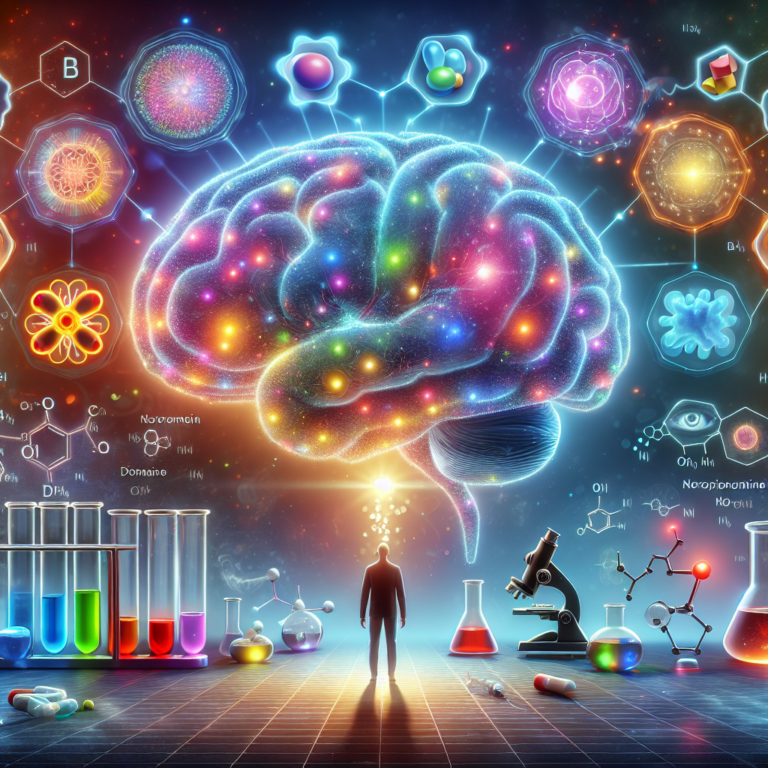
Introduction
Imagine waking up every morning, filled with a sense of purpose and joy, utterly grateful for the life you live. Happiness is a universal aspiration, yet it often feels elusive. In a world grappling with anxiety, stress, and discontent, the quest for happiness is more important than ever. This article, titled "Unlocking the Science of Happiness: What Research Tells Us," aims to explore the scientific underpinnings of happiness—what it is, what factors contribute to it, and how we can cultivate it in our daily lives.
In an age where distractions abound, understanding the intricacies of happiness is not just desirable but essential. With insights from psychology, sociology, and neuroscience, we will navigate through current research findings that can equip you with the tools to enhance your personal joy. Join us as we unlock the science and discover what research truly tells us about happiness!
Understanding Happiness: What Is It?
Before diving into the science, let’s define what we mean by happiness. Happiness is often described as a state of well-being and contentment, encompassing both emotional and mental aspects. Researchers distinguish between two types of happiness: hedonic happiness, which relates to pleasure and comfort, and eudaimonic happiness, which pertains to living a meaningful life.
The Hedonic vs. Eudaimonic Dichotomy
| Type | Description | Key Elements |
|---|---|---|
| Hedonic | Pursuit of pleasure and avoidance of pain | Sensory experiences, momentary joy |
| Eudaimonic | Pursuit of meaning and purpose | Personal growth, altruism, fulfillment |
Research frequently emphasizes the need for a balance between these two dimensions, suggesting that while momentary pleasures contribute to happiness, deeper satisfaction comes from engaging in meaningful activities.
The Neuroscience of Happiness
What happens in our brains when we experience happiness? Neuroscience provides fascinating insights into the workings of happiness, revealing the roles of neurotransmitters and brain structures.
Key Neurotransmitters
- Dopamine: Often labeled the "feel-good" neurotransmitter, dopamine is released during pleasurable activities. Its role extends beyond mere pleasure to include motivation and reward.
- Serotonin: This neurotransmitter helps regulate mood and social behavior. Increased levels of serotonin commonly correlate with enhanced feelings of well-being.
- Oxytocin: Known as the "bonding hormone," oxytocin is released during social interactions, fostering connections and enhancing feelings of happiness.
Understanding these biochemical processes is crucial for unlocking the science of happiness: what research tells us reveals that our emotional experiences are not merely subjective; they are intricately connected to our biology.
Factors That Influence Happiness
1. Genetics
Studies indicate that genetic factors may account for approximately 50% of our happiness levels. Research conducted by Dr. Sonja Lyubomirsky highlights that while genetics plays a significant role, it is not the sole determinant of our joy.
2. Environment and Circumstances
External factors also heavily impact happiness. According to research by the University of Cambridge, life circumstances—such as income, marital status, and social connections—contribute about 10% to our overall happiness. For example, individuals with supportive social networks tend to report higher levels of happiness.
3. Intentional Activities
The remaining 40% of our happiness is attributed to intentional activities—actions and choices we consciously make. This includes engaging in hobbies, performing acts of kindness, and practicing gratitude. *
Case Study: Gratitude Journals
Researchers from the University of California, Davis, conducted a study on gratitude journaling, where participants wrote down things they were grateful for every week. The results? Those who practiced gratitude reported higher levels of happiness and satisfaction in their lives.
4. Mindset and Attitude
Our attitudes and beliefs significantly influence how we perceive happiness. Cognitive behavioral therapy (CBT) emphasizes the connection between thought patterns and emotional well-being, illustrating that cultivating a positive mindset can enhance happiness levels.
Case Study: Fixed vs. Growth Mindset
Dr. Carol Dweck’s research on mindset highlights how our beliefs about abilities influence success and satisfaction. Individuals with a growth mindset embrace challenges and view failures as learning opportunities, often leading to greater happiness.
Building Happiness: Practical Steps Guided by Research
Understanding the underlying mechanisms of happiness is crucial, but what actionable strategies can we adopt to enhance our happiness?
1. Foster Relationships
Strong social connections are consistently linked to increased happiness. Research from Harvard’s Study of Adult Development, spanning over 80 years, shows that meaningful relationships are a key predictor of happiness and health.
Actionable Insight: Invest time nurturing existing relationships and building new connections through community engagement or social activities.
2. Engage in Regular Exercise
Physical activity not only boosts serotonin levels but also enhances self-esteem. According to a study from the Mayo Clinic, even moderate exercise can lead to significant improvements in mood.
Actionable Insight: Aim for at least 30 minutes of physical activity most days of the week.
3. Cultivate Mindfulness and Meditation
Practices like mindfulness meditation can promote happiness by increasing awareness and acceptance of the present moment. Research published in the journal Psychological Science demonstrates that mindfulness can reduce negative emotions and enhance well-being.
Actionable Insight: Consider daily meditation for 10-15 minutes to cultivate a sense of peace and joy.
4. Practice Acts of Kindness
Engaging in altruistic behaviors can create a “helper’s high,” releasing endorphins and improving mood. A study published in the Journal of Happiness Studies found that those who performed acts of kindness reported higher levels of life satisfaction.
Actionable Insight: Make it a goal to perform one act of kindness each day, whether big or small.
5. Embrace Lifelong Learning
The pursuit of knowledge and personal growth is intricately linked to happiness. Research indicates that continuous learning fosters self-worth and purpose.
Actionable Insight: Take up a new hobby or enroll in a class that piques your interest.
Case Studies: Real-World Applications of Happiness Research
The Happiness Project
Gretchen Rubin’s "The Happiness Project" outlines her year-long endeavor to explore what leads to true happiness. By implementing small changes based on research findings—such as decluttering, practicing gratitude, and connecting with friends—Rubin discovered that integrating scientifically-backed methods significantly enhanced her well-being.
The Blue Zones
Research on longevity hotspots known as “Blue Zones” shows that communities in places like Ikaria, Greece, and Okinawa, Japan, prioritize activities that promote happiness. These communities emphasize strong social networks, physical activity, and plant-based diets.
The Science of Well-Being Course
Yale University’s course on the Science of Well-Being, taught by Dr. Laurie Santos, emphasizes practical strategies rooted in happiness research. The course encourages participants to adopt habits that enhance their well-being, resulting in improved life satisfaction.
Conclusion
As we conclude our journey into "Unlocking the Science of Happiness: What Research Tells Us," it’s clear that happiness is an attainable state—rooted in our biology, nurtured by our environment, and ultimately shaped by our choices. While external factors play a role, it’s the intentional actions we take that truly maximize our potential for happiness.
By cultivating strong relationships, engaging in physical activity, practicing gratitude, and embracing lifelong learning, we can unlock our happiness and live fulfilling lives.
Remember, happiness is not a destination but a journey. As you apply these insights, look for opportunities to weave joy into the fabric of your daily routine, and you just might find that happiness unfolds naturally.
FAQs
1. Is happiness genetically predetermined?
While genetics play a significant role in shaping our baseline happiness, research shows that much of our happiness can be influenced by our choices and intentional actions.
2. Can money buy happiness?
Money can contribute to happiness, particularly in meeting basic needs and improving life circumstances, but beyond a certain point, increased wealth does not significantly correlate with higher happiness.
3. What role do social connections play in happiness?
Strong social relationships are one of the most consistent predictors of happiness. They provide support, joy, and a sense of belonging, which are critical for emotional well-being.
4. Are happiness and success directly correlated?
Not necessarily. Research indicates that happiness can lead to greater success, rather than success leading to happiness. Cultivating happiness can empower us to excel in various aspects of life.
5. How can I start my happiness journey today?
Begin by implementing small changes in your daily routine, such as practicing gratitude, engaging in physical activities, and nurturing your relationships. Each step you take towards these actions will contribute positively to your happiness.
Embark on the journey of happiness with the confidence that unlocking the science of happiness is within your grasp!















